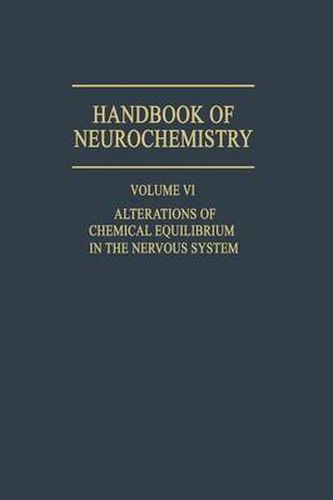Readings Newsletter
Become a Readings Member to make your shopping experience even easier.
Sign in or sign up for free!
You’re not far away from qualifying for FREE standard shipping within Australia
You’ve qualified for FREE standard shipping within Australia
The cart is loading…






This title is printed to order. This book may have been self-published. If so, we cannot guarantee the quality of the content. In the main most books will have gone through the editing process however some may not. We therefore suggest that you be aware of this before ordering this book. If in doubt check either the author or publisher’s details as we are unable to accept any returns unless they are faulty. Please contact us if you have any questions.
It has been recognized for more than a thousand years that the function of the brain, like the function of the other organs of the body, is determined by its physical, chemical, and biological properties. Evidence that even its highest functions could be explained by these properties was gathered only in recent years, however; these findings, which clearly have to be confirmed by a great deal of further experimental evidence, indicate that most, if not all, of the functions of the brain are based on its bio chemical and biophysical mechanisms. This at first hearing may sound rather simple, but the ability to understand learning, emotion, perhaps even creativity, on biological terms may well be the most important scientific discovery of all time. Few pieces of knowledge can influence our future health and well-being to the degree that understanding of mental mechanisms will. It has been clearly shown in many ways in the previous volumes of this Handbook that from the biochemical or neurochemical point of view the brain is one of the most active organs. The brain seems stable and in some respects permanent; this is evidence not of inactivity but of carefully controlled homeostasis, of dynamic rather than static equilibrium, with most components undergoing metabolic alterations.
$9.00 standard shipping within Australia
FREE standard shipping within Australia for orders over $100.00
Express & International shipping calculated at checkout
This title is printed to order. This book may have been self-published. If so, we cannot guarantee the quality of the content. In the main most books will have gone through the editing process however some may not. We therefore suggest that you be aware of this before ordering this book. If in doubt check either the author or publisher’s details as we are unable to accept any returns unless they are faulty. Please contact us if you have any questions.
It has been recognized for more than a thousand years that the function of the brain, like the function of the other organs of the body, is determined by its physical, chemical, and biological properties. Evidence that even its highest functions could be explained by these properties was gathered only in recent years, however; these findings, which clearly have to be confirmed by a great deal of further experimental evidence, indicate that most, if not all, of the functions of the brain are based on its bio chemical and biophysical mechanisms. This at first hearing may sound rather simple, but the ability to understand learning, emotion, perhaps even creativity, on biological terms may well be the most important scientific discovery of all time. Few pieces of knowledge can influence our future health and well-being to the degree that understanding of mental mechanisms will. It has been clearly shown in many ways in the previous volumes of this Handbook that from the biochemical or neurochemical point of view the brain is one of the most active organs. The brain seems stable and in some respects permanent; this is evidence not of inactivity but of carefully controlled homeostasis, of dynamic rather than static equilibrium, with most components undergoing metabolic alterations.